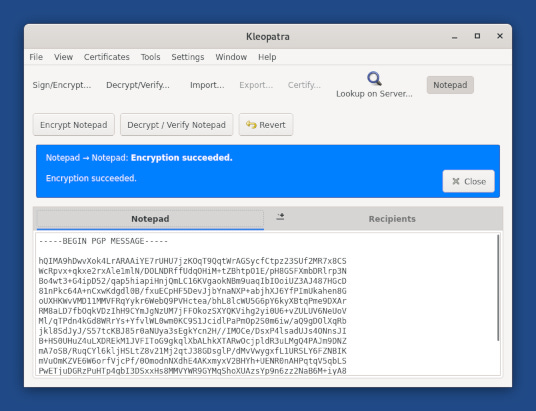Tails 5.0 -- The portable, anti-surveillance Linux distribution
A Linux distribution with a focus on... not remembering anything. Seriously.
Tails is, without a doubt, one of weirdest Linux distributions on planet Earth.
The key feature of Tails is… amnesia. Which the Tails team describes thusly:
Tails always starts from the same clean state and everything you do disappears automatically when you shut down Tails.
Without Tails, almost everything you do can leave traces on the computer:
Websites that you visited, even in private mode
Files that you opened, even if you deleted them
Passwords, even if you use a password manager
All the devices and Wi-Fi networks that you used
On the contrary, Tails never writes anything to the hard disk and only runs from the memory of the computer. The memory is entirely deleted when you shutdown Tails, erasing all possible traces.
That’s right. Every time you boot up tails, off a USB drive typically, your computer is in a completely clean, fresh state. Like you’ve never used it before. Tails also has a heavy focus on piping Internet traffic through TOR.
It’s all about being as anonymous and non-trackable as possible.
Tails does have the optional functionality of having an encrypted persistent storage, luckily. So if you need to store, you know, some files… you can. You just need to jump through a few hoops to do so.
Well, Tails just released their big 5.0 version — the first release based on Debian (code name Bullseye) — and, other than the features I just described… it looks like a remarkably familiar GNOME Shell based desktop.
Outside of moving to Debian 11, and updating a bunch of packages to current versions, one of the biggest changes of Tails 5.0 seems to be the addition of Kleopatra — an application for handling PGP encryption.
Tails is, for obvious reasons, probably not the kind of operating system that most of us would want (or need) to use on any regular basis. But the “Tails doesn’t remember anything about you from boot to boot” does have its value.
So many books are available (as an added perk) for all subscribers to The Lunduke Journal, like “Lunduke’s History of Computers”.
Which… is about computers. Specifically, their history. It’s good. You should read it.






